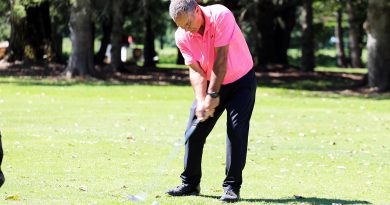June 21 COVID-19 update: City cases continue to fall, Pfizer shipment delayed, Travel protocols changing, Renfrew bridge benefits from COVID-19
Special to WC Online
OTTAWA – Ottawa Public Health (OPH) is reporting 11 new cases of COVID-19 as ongoing vaccination continues to help new case totals fall.
The City of Ottawa has administered 92 per cent of the 782,390 COVID-19 vaccine doses it’s received as of today, (June 21). According to OPH’s local vaccination dashboard, more than 76 per cent of residents over the age of 18 and 65 per cent of all residents have had at least one dose of a COVID-19 vaccine.
OPH says 170,792 residents have been fully vaccinated, which equals 20 per cent of residents over 18 and 16 per cent of the entire population.
Five new community vaccination clinics are opening in Ottawa today (June 21), nearly doubling Ottawa’s capacity to administer vaccines. The clinics are in high priority neighbourhoods. Meanwhile, tomorrow (June 22) OPH will be hosting an invitation only clinic at West Carleton Secondary School.
Ottawa’s weekly COVID-19 incidence rate is down to 13.7 per 100,000 residents.
The local positivity rate is down to 2.1 per cent.
OPH says 12 residents are in local hospitals with COVID-19 – five of whom are in intensive care.
The health unit is tracking 186 active cases of the novel coronavirus in the community.
There continue to be COVID-19 outbreaks at five Ottawa healthcare institutions and one childcare centre. OPH is also tracking three community outbreaks: one stemming from a distribution facility; another linked to a retail workplace; and one from a hotel or bed and breakfast.
No new COVID-19 deaths reported Monday leaves Ottawa’s pandemic toll at 588, including: one person in their 20s; one in their 30s; eight in their 40s; 25 in their 50s; 71 in their 60s; 111 in their 70s; 203 in their 80s; and 168 in their 90s.
There have been 27,581 confirmed cases of COVID-19 in Ottawa (26,807 resolved) since March of 2020.
Ontario is reporting 270 new cases of COVID-19 on Monday and three more deaths linked to the virus.
Province faces Pfizer vaccine delay
OTTAWA – Just in time for this week’s vaccination push this week, the Ontario government announced the province’s delivery of Pfizer will be delayed by two-to-three days.
The Ministry of Health confirmed the news Sunday (June 20), but added Ontario does still have a large supply of Moderna doses which will be used to supplement the delayed Pfizer doses.
“If you had Moderna or Pfizer for your first dose, you can safely take either Moderna or Pfizer for your second dose for strong protection,” Christian Hasse, a spokesperson for the ministry, released in a statement. “Both Moderna and Pfizer vaccines are authorized for use in Canada and use a similar mRNA technology, so the vaccines are interchangeable and safe to mix.”
To ensure the maximum protection against COVID-19 and the Delta variant, Ontario residents should get vaccinated as soon as they can and book their second dose as soon as they are eligible, the ministry added.
According to OPH, the Pfizer vaccine shipment was expected in the city today, (June 21).
“To ensure vaccine appointments are honoured at immunization clinics over the coming week, the city and OPH will administer the Moderna mRNA vaccine as it is interchangeable with Pfizer,” OPH released in a statement Sunday afternoon.
Starting today (June 21), individuals who are 18 and over who have an appointment booked at one of the city-run immunization clinics will get the Moderna vaccine.
The priority is to receive two doses of the vaccine to complete the series and be fully protected, OPH said.
“Clinic staff will ensure residents are aware of which vaccine they will receive,” OPH said. “However, there will be no opportunity for residents to request or switch to another type of vaccine. The limited Pfizer vaccine will be reserved for youth 12 to 17 years old.”
Procurement Minister Anita Anand said last week she was pleased Canada had reached the first major target for getting enough Canadians vaccinated to keep hospital emergency rooms from becoming overcrowded this summer.
In fact, the expected shipment of Moderna doses for July was 11 million, but they’ll actually be arriving early.
Prime Minister Justin Trudeau says Canada is on track now to have 68 million doses delivered by the end of July, which is more than enough to fully vaccinate all 33.2-million Canadians over the age of 12.
Quarantine rules set to change
CANADA – Canada is set to detail what quarantine rules citizens and permanent residents who are fully vaccinated against COVID-19 will soon have to follow when entering the country.
Public Safety and Emergency Preparedness Minister Bill Blair said last week “measures” would be announced today (June 21) that will apply to immunized Canadians, as well as foreign nationals who are permitted entry.
Currently, those without citizenship or resident status can enter the country only if their travel is related to work, school or other essential business.
As more Canadians get inoculated against COVID-19 and summer weather has people chomping at the bit to take some long-awaited trips, pressure is building for the Liberal government to begin relaxing some of its border and quarantine rules.
Over the weekend the country hit an important milestone, having 75 per cent of its eligible population receive at least one dose and 20 per cent two.
These were benchmarks Prime Minister Justin Trudeau and top health officials said needed to be met to safely relax pandemic-related health measures.
Those hoping to see some loosening this month were disappointed on Friday (June 18) when the Liberal government announced its restrictions on non-essential international travel would remain in place at the Canada-U.S. border until July 21.
Health Minister Patty Hajdu has said that starting in early July, the government looked to exempt fully vaccinated travellers from having to pay for a three-night stay at a government-approved hotel.
The hotels are where Canadians entering the country by air, regardless of their vaccination status, must currently begin a 14-day quarantine while awaiting a negative result from a COVID-19 test required upon arrival.
Among the Canadians who recently went through the process was Trudeau himself, who’s currently in quarantine after spending five days in Europe attending international meetings with G7 and NATO leaders.
The prime minister said = in terms of being able to show border security some proof of vaccination, the country would rely on Canadians uploading images of their records to its ArriveCAN app, which is where returning travellers already have to share where they will stay for their 14 days of quarantine.
Both he and Hajdu say the country’s border rules would be relaxed in phases.
Hajdu has said the government intends those who are fully vaccinated to still be tested for COVID-19 before leaving from Canada and again on their return, where they would also need a plan for where to quarantine while awaiting a negative result.
An expert panel comprised mainly of doctors that studied Canada’s COVID-19 border measures recently recommended the government scrap hotel quarantines altogether for fully vaccinated travellers, provided they test negative for the virus and have proof they have been inoculated.
As for those with one dose, the doctors suggested travellers quarantine at home until receiving their negative COVID-19 test after having a swab done before departure.
And for those who haven’t been vaccinated at all, the panel said they should be allowed to leave quarantine if they test negative before departure, upon arrival and seven days into the full two-week self-isolation period.
Renfrew swinging bridge benefitting from COVID-19
RENFREW – While not many people have benefited from the COVID-19 pandemic, one Renfrew-area historic bridge is thanks to government funding earmarked for the pandemic.
The COVID-19 Resilience Infrastructure Fund is paying for major upgrades to one of the Town of Renfrew’s most recognizable tourist attractions. The $183,000 facelift for the town’s Swinging Bridge is funded 80 per cent ($146,938.40) by the federal government and 20 per cent ($36,734.60) by the province. Any funds spent in excess of those amounts will be at the expense of the Town of Renfrew.
During a recent Renfrew town council meeting, a resolution was passed allowing for the sole contracting of the bridge project to be awarded to WSP, an Ottawa-based firm contracted out previously when the bridge underwent structural upgrades.
Mike Asselin, the town’s director of Development and Works Department, informed council the awarding of the contract was time sensitive, and it was sole-sourced in order to meet the timelines of the relief program.
“We were notified of the success of the funding and that allowed us to advance the project to the design phase right away,” he said. “Based on funding, this project must be started in June 2021 and be complete in December 2021, and in order to meet this required deadline, the town needed to fast track design and construction. WSP has a working familiarity with the swinging bridge as they have completed the Ontario Structure Inspection Manual (OSIM) inspections on this bridge, as well as completed interim repairs in the last two years.”
Like several COVID-related government programs introduced over the last 16 months, there is usually a limited window of opportunity to apply, but municipalities tend to have projects that are “shovel-ready” and can be activated quickly.
The intent of the bridge project is to extend the life of the landmark for another 25 years. The design phase has already been started and the goal is to begin upgrades by the end of August.











